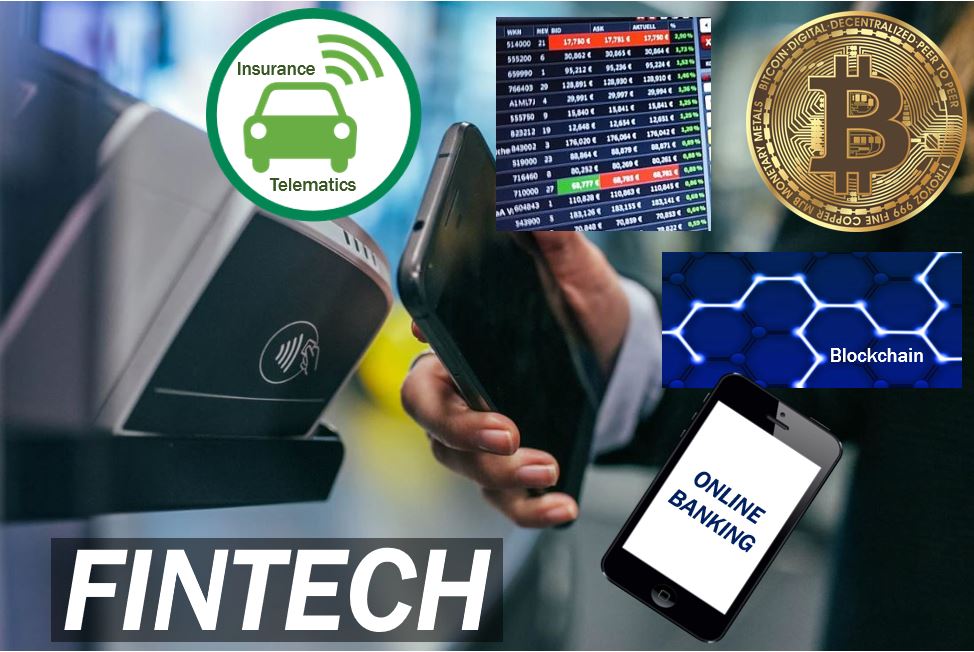FinTech is short for Financial Technology. It refers to the ever evolving intersection of technology and financial services. Computer software and other technology that banks, other financial institutions, and financial services companies use are examples of FinTech. It is a rapidly growing area for angel investors and venture capitalists.
An angel investor or business angel is an individual who invests his or her own money in a startup. Venture capitalists typically work for firms and may use other people’s money. We refer to the money they use in both cases as venture capital.
 FinTech helps businesses, entrepreneurs, and consumers manage their processes and financial operations more effectively and efficiently.
FinTech helps businesses, entrepreneurs, and consumers manage their processes and financial operations more effectively and efficiently.
Definitions vary
Some dictionaries and organizations say that FinTech refers to tech companies that service the banking and finance sector. Others, on the other hand, define it as simply new financial technology.
FinTech is pioneering inclusive financial services, extending banking and investment opportunities to underserved populations through mobile technology and microfinance platforms.
Competing with traditional methods
Initially, financial technology competed with traditional banking and finance methods. However, over the past few decades, traditional methods have gradually fallen by the wayside. Automation and the Internet have changed how banks, other financial institutions, and customers conduct business. Even artificial intelligence has made its way into finance in a big way.
Artificial intelligence includes software programs that make smart devices, i.e., computers and robots, think like humans. They also make them behave like humans.
One of the most evident results of all this innovation has been the massive reduction in the number of bricks-and-mortar bank branches across the world.
Three or four decades ago, the most common way to pay invoices was by check (British: cheque). People and businesses currently conduct most banking transactions online. FinTech has automated banking services, risk management, trading, and insurance.
FinTech examples
Opening a bank account and digital wallets
Today, it is possible to open a bank account online without ever having to enter a branch building. You can do it all with your smartphone, and then use it to carry out all your financial transactions. It is even possible to apply for a loan online.
Some people have turned their mobile phone into a digital wallet, .i.e., a system that stores the user’s payment information securely. It stores all cards digitally for payments.
Companies in this modern age are even using virtual company cards, which can be a safe and secure alternative to company credit cards.
Car insurance
Insurance companies today sell telematics-based insurance. A black box is fitted into the owner’s car and monitors his or her driving. How much their premiums cost depends on how well or badly they drive. Safe drivers pay less than their relatively dangerous counterparts.
It won’t be long before we will be able to have very short-term pay-as-you-go car insurance.
Investing over the Internet
Thanks to advances in technology, people can now invest online all by themselves, without needing to meet with a financial advisor in person. This is called “execution only” investing, where you make your own decisions and just use the platform to carry them out.
Other FinTech examples include:
- Cryptocurrencies.
- Blockchain.
- Crowdfunding platforms.
- Budgeting apps.
- Cognitive AI (artificial intelligence).
- White label banking.
- Financial eLearning.
